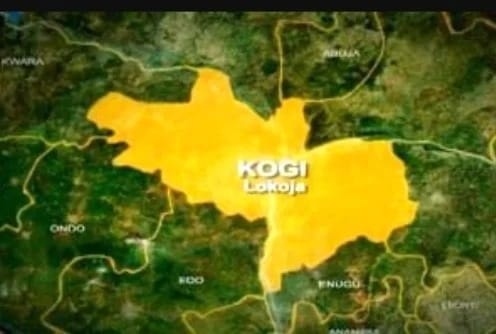Thousands of women in West Bengal state of India marched through the streets on Wednesday night, protesting against the rape and murder of a trainee doctor at a state-run hospital in Kolkata last week.
The night march marked the peak of nearly one week of intense protests sparked by the brutal killing of the 31-year-old doctor at RG Kar Medical College last Friday.
BBC reported that after a grueling 36-hour shift, the deceased had fallen asleep in a seminar room due to the lack of a designated rest area.
The next morning, her colleagues discovered her half-naked body on the podium, bearing extensive injuries.
A hospital volunteer worker has been arrested in connection with the crime.
Responding to calls on social media, women from all walks of life marched across Kolkata city and throughout the state on a rainy Wednesday night.
Though protests were largely peaceful, they were marred by clashes between the police and a small group of unidentified men who barged into the RG Kar Hospital, the site of the doctor’s murder, and ransacked the emergency department.
While police fired tear gas to disperse the unruly crowd, some police vehicles were also damaged.
Smaller protests were also held in many other Indian cities like Delhi, Hyderabad, Mumbai, and Pune.
In Kolkata, the women brandished protest placards and their faces lit by mobile phones, candlelight, and blazing torches. Some also carried Indian flags, while men of all ages joined the procession.
During the marches and at many gatherings near a university, theatre hall, and bus terminus, the protesters stood united, holding hands as the humid air echoed with loud and powerful chants of “We want justice”.
At the stroke of midnight, as India completed 77 years of Independence, the soundscape of protest changed with the air filled with a spontaneous chorus of the national anthem. Then it began raining, but the protesters walked in the rain, holding umbrellas over their heads.
“We have never seen anything like this before in the city, such a huge gathering of women marching at night,” a reporter belonging to a news network said.
A woman, who joined the march well after midnight with her 13-year-old daughter said, “Let her see whether a mass protest can set things right. Let her become aware of her rights”.
“Women have no respect!” said another. “Our worth is less than cows and goats.”
“When do we get our independence? How long do we have to wait to work without fear? Another 50 years?” asked a student.
Sanchari Mukherjee said she marched with thousands of others from a bus terminus in Jadavpur, undeterred by the rain.
She stressed that meeting “people of all ages, from all classes, the well-to-do, the middle class and the poor”.
“I saw an elderly couple, the husband helping the woman to walk,” she said.
“One family brought their little girl along, perhaps so the memory of this event would be etched in her mind how her parents stood up against injustice, and how she, too, can protest one day.”
A resident, Ms Mukherjee said the entire city seemed awake as the marchers passed by illuminated homes, with people peering out of windows and crowding verandahs to watch.
“They may not have participated but they were with us in spirit,” she said.
“‘We want justice’ had become the anthem of the march, and it didn’t feel like just a slogan,” Ms Mukherjee said.
“It felt like every young woman was deeply hurt and determined, frustrated that they still face these issues in 2024.”
The protests have been fueled by anger over local authorities’ handling of the young trainee doctor’s rape and murder.
Though the Police later arrested a hospital volunteer worker in connection with what they said was a case of rape and murder, there have been accusations of cover-up and negligence.
The case has since been transferred from local police to the federal Central Bureau of Investigation.
It was not the first time that a ‘Reclaim the Night’ march had been staged in India.
Inspired by similar marches elsewhere in the world by women to assert their rights to walk in public areas without fear, a march was held in 1978 in Bombay (now Mumbai) in protest against the rape of a woman on the street.
Visit website
DNews Info is a trusted source for breaking news, insightful commentary, and in-depth coverage of events across Nigeria and beyond. With a commitment to delivering accurate, timely, and engaging stories, we aim to keep our readers informed and empowered. Stay connected for the latest updates in politics, business, entertainment, and more.
Discover more from DnewsInfo
Subscribe to get the latest posts sent to your email.




